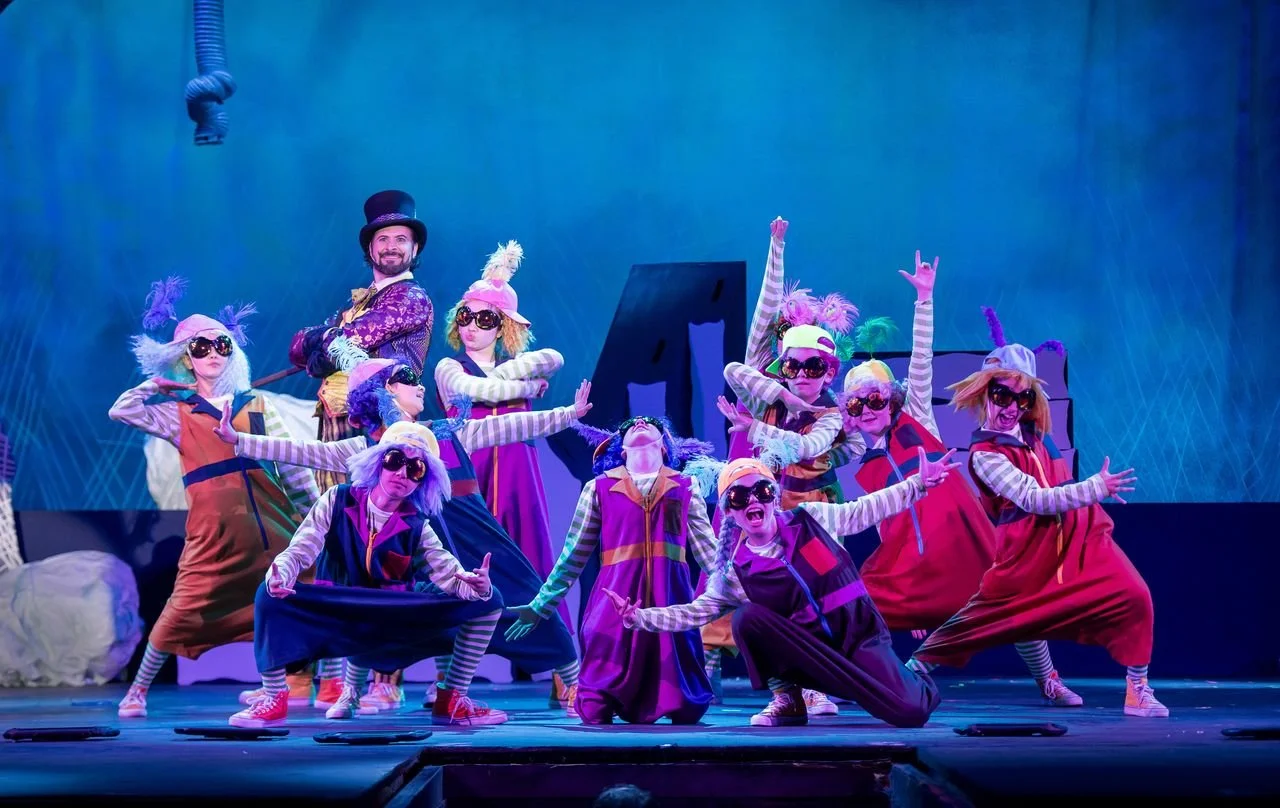Theatre review: Sea Sick still resonates in its messages about the ocean, not to mention its journalism
Alanna Mitchell’s calm, rhetoric-free firsthand accounts are perfectly attuned to a world in a state of reflection and change
Alanna Mitchell performs with a simple blackboard and circle on the floor. Photo by Alejandro Santiago
The Cultch presents Sea Sick at the Historic Theatre until February 19
ALANNA MITCHELL’S Sea Sick is about the loss of our oceans, but these days it also makes you grieve for the loss of the kind of deep-dive, meticulous investigative journalism she does.
The show, if possible even more timely than when it debuted here in 2014 at the PuSh International Performing Arts Festival, is the result of three years and 13 farflung journeys—to rare coral-bloom “orgies”, to the bottom of the ocean in submersibles, to “dead zones” devoid of fish at the mouth of the Mississippi River—all in an attempt to link scientists’ disparate studies into acidification and warming seas. It’s the kind of time- and cost-heavy, in-depth research that only an endangered group of newspapers funds anymore.
Through Sea Sick, the book and her play, Mitchell connects a wide web of research into a single, alarming look at the scale of the environmental crisis we face on Earth. Among her most important and accessible messages: “The ocean is the quick of life.” All land-based life could collapse, and the ocean would go on. If the ocean collapses, so does all land-based life.
What helps make Mitchell so persuasive is precisely the fact that she is an investigative journalist. It never feels like the calm speaker before us is trying to advocate, let alone “perform”: right off the top of the show, Mitchell talks about being a non-actor, and that she’s breaking the central rule of journalism, that you never make the story about yourself.
That endows this unusual hybrid between a TED Talk, docu-theatre, and monologue with refreshing authenticity in a world, and a World Wide Web, increasingly cluttered with rhetoric, raised voices, and conspiracy theories. Here is Mitchell, with her self-effacing humour—she tells one anecdote about being in the worst place in the world to suddenly have to go pee—a blackboard and a piece of chalk, simply setting out the case.
Mitchell makes complex science, the kind that doesn’t easily translate on 30-second sound bites, into something comprehensible. Think farm fertilizers creating oxygen-depleting algae blooms or the way carbon dioxide produces carbonic acid in the water. She reveals that her unique ability to convey all this might stem from her Prairies upbringing, where her scientist father taught her the value of curiosity and knowledge, and her artist mother passed on the ability to shape information into something meaningful.
Fittingly, director Franco Boni takes a light touch with only the subtlest of lighting and sound effects here; at one moment, simply by darkening the space and illuminating the circle Mitchell stands in, they take us to the bottom of the sea.
Mitchell has updated Sea Sick for pandemic times, talking about the fact that even with the world shut down, and people not flying or driving to work, the drop in emissions has been a mere seven percent. More terrifying evidence that our fate may be set.
Somehow Mitchell's intimate show about our place in the universe feels perfectly attuned to this era of uncertainty and reflection. In one vulnerable moment, Mitchell admits a depressing scientific revelation made her unable to get out of bed for a month. Her magic here is that, in her journalistic firsthand accounts and her soft-spoken way, Mitchell illuminates the need for seismic systemic change without overwhelming viewers in the same way. She has processed the unbearable so we can absorb it. And, hopefully, act.




![Theatre review: Complete Works of William Shakespeare (abridged) [revised] [again] takes pleasingly panicked tour of the Bard’s canon](https://images.squarespace-cdn.com/content/v1/5f10a7f0e4041a480cbbf0be/1752776963817-BS2BYYQMLMSGU9OG3E37/Nathan-Kay-and-Craig-Erickson.-Photo-By-Tim-Matheson.jpg)








